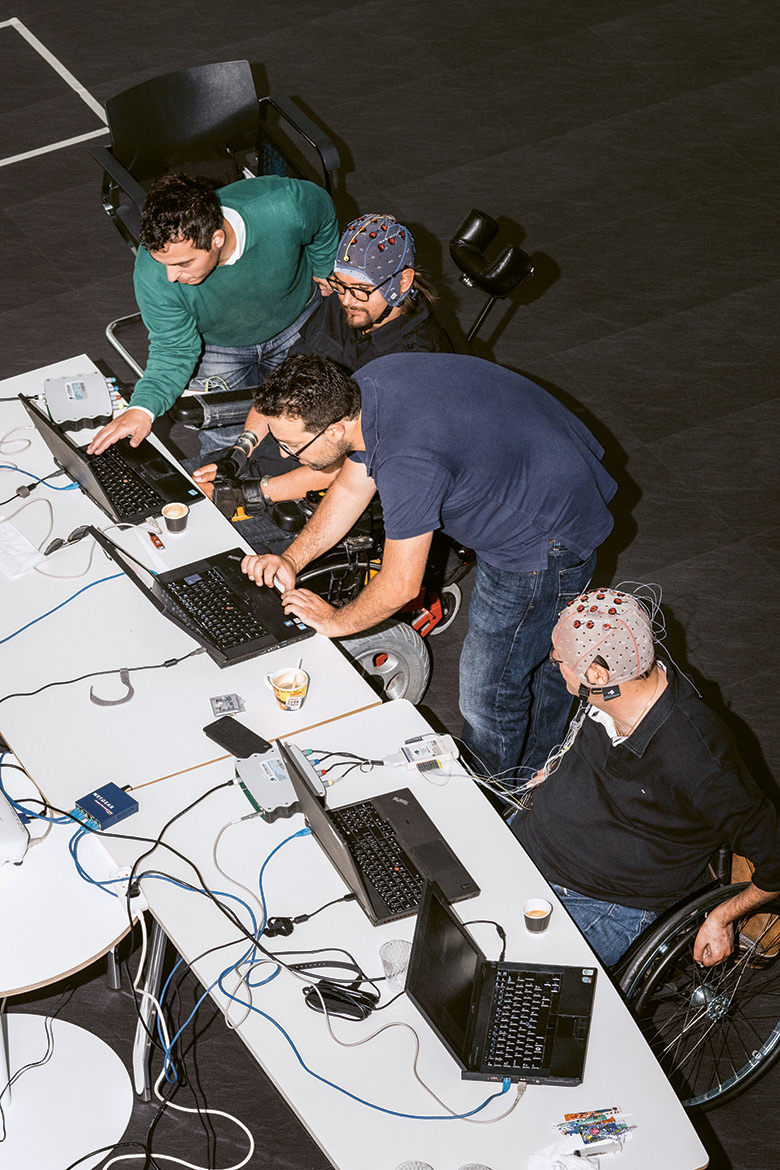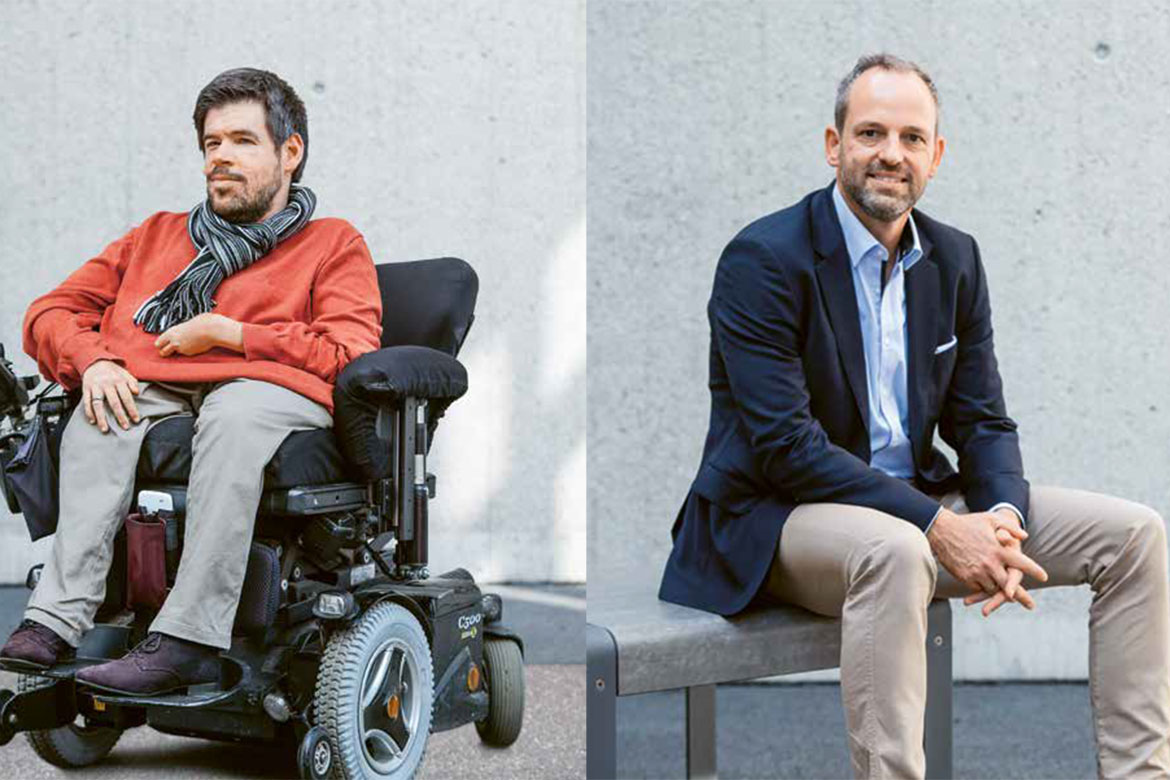Feature: The limits of brain research
A smartphone in our head?
The boundary between our mind and the outer world is becoming increasingly blurred. We ought to start thinking about what might change if we could connect our brains to computers.

Brain-computer interfaces are still at the experimental stage. At EPFL, two men are here controlling an avatar in a computer by means of caps on their heads that are full of electrodes. | Image: Matthieu Gafsou
In times gone by, our soul was still considered to be immortal – at least in the case of what Aristotle called anima intellectiva, or ‘intellectual soul’. René Descartes also regarded our inner, spiritual world – res cogitans – as something that was clearly separate from our body, and thus also from the material world. The body bore the marks of life; but he believed that the soul, by contrast, was immune to the vicissitudes of the physical world in which we live.
Today, however, materialism has become the accepted philosophy. Our ‘spirit’ is now regarded as a product of our brain and hence something originating in the body. This makes it just as vulnerable as the body itself, and just as exposed to external influences. A tiny blood clot can trigger a stroke in the brain that in turn can result in a massive change in our personality.
Medical science is now also penetrating our mind. In the Feature articles of this issue of Horizons, we show how it can begin harmlessly with ‘brain jogging’ and mindfulness training, but then lead to the use of stimulants, neurofeedback, magnetic therapy, and ultimately to the implantation of electrodes in the brain.
When a patient suffering from severe depression suddenly breaks into a smile after an implant operation, this blurs the boundary between our inner self and the world outside. We can no longer be sure who is smiling: is it the patient, or the neurologist who is adjusting the electrodes in her brain? These implants – which have long been used as a matter of course to treat Parkinson’s disease – merely offer us a foretaste of what is likely to come soon: Brain-computer interfaces.
The company Neuralink is developing just such interfaces in hopes of arriving at an improved treatment of brain diseases. But this means it’s no longer a giant leap to achieving brain-controlled electronic devices, or to receiving electronic information direct in our brains. Already today, we can control computers with electrodes outside our skull. Who knows, perhaps we will one day be able to integrate the functions of our smartphones directly in our brains. It would make operating them much quicker than is the case today with our fingers and thumbs, and there’d be no danger of breaking a screen. Is this perhaps a frightening idea? Either way, we would do well to decide how we might want to deal with these developments before they become a reality.




